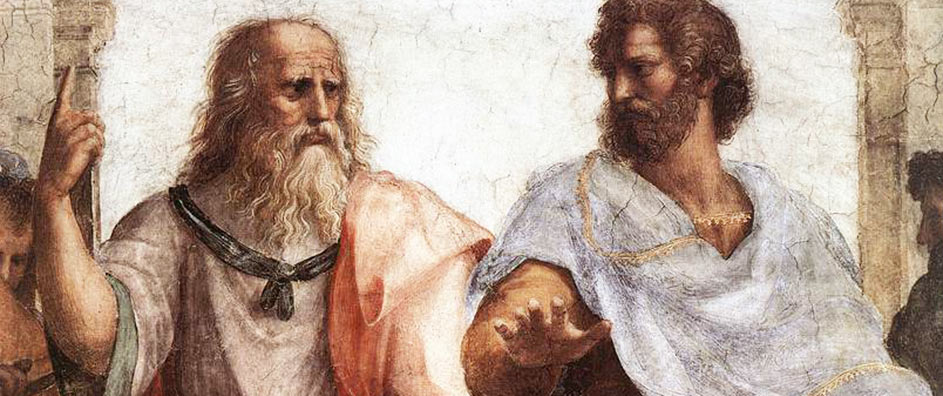The views expressed in our content reflect individual perspectives and do not represent the authoritative views of the Baha'i Faith.
You’ve definitely heard the term “politically correct” a lot lately—but what do you think it means?
To get a clear, unbiased definition, let’s look at the roots of the phrase. Believe it or not, the words polite and political may have a common root—the word polite comes originally from the Latin word politus, which means “polished,” and in later Latin took on the meaning of “organized” or “refined.” The Greeks derived the word politics from the root polis, which meant an organized city, and gave it a new meaning: “of, for, or relating to citizens.”
You can see why the connection between the two words makes sense. In politics, being polite or “refined” usually helps candidates; while being rude and uncouth can hurt them. That’s why leaders try to evince a sense of politesse, to use the French word for kindness, diplomacy and politeness.
Well, at least that has seemed true until recently.
Sadly, the world’s political campaigns have, over the past couple of decades, become increasingly impolite and unkind—and that’s a polite understatement. Filled with nasty rhetoric, attack ads, dirty tricks, mudslinging and offensive insults, campaigns have definitely degraded since the days when candidates simply and quietly debated the merits of competing policy proposals. Today it’s hard to remember when things were ever civil in politics.
Which brings up two other related words that immediately come to mind: civil and uncivil. The word civil, which now usually means “polite,” originally came from the Latin civis, which meant “townsman” or “citizen.” In the early days of human history, when larger towns and cities began to develop, people had to acquire a new skill. They needed to learn to get along with unfamiliar people, those not from their family or tribe. In other words, they had to figure out how to be civil to one another.
That’s why we still teach the subject of civics in schools—so students can develop and apply the classical civic virtues in their communities when they become adults. Plato and Socrates cared deeply about those civic virtues, which they believed were required to govern and maintain the functioning of the polis. They asked: “How do you hold a disparate, unrelated group of human beings together?” and “What form of government best exemplifies civic virtue?” and “What character traits do individuals need to have to build a cohesive civil society?”

Those concerns all go back to one main question: How do our societies treat strangers? Every civic virtue, the philosophers concluded, begins with consideration for the thoughts and feelings of others. Makes sense, doesn’t it? A civil culture starts with a sense of civility. All successful human cultures grow out of simple kindness and politeness—not just to the people you know, but especially to those you don’t know. That’s where the phrase “civil society” originated.
From a Baha’i perspective, being polite and civil to others involves simple common courtesy—an attribute the Baha’i teachings describe as a truly spiritual character trait:
We, verily, have chosen courtesy, and made it the true mark of such as are nigh unto Him. Courtesy is, in truth, a raiment which fitteth all men, whether young or old. Well is it with him that adorneth his temple therewith, and woe unto him who is deprived of this great bounty. – Baha’u’llah, Epistle to the Son of the Wolf, p. 50.
In fact, Baha’u’llah asked every human being to be truthful and courteous:
Let truthfulness and courtesy be your adorning. Suffer not yourselves to be deprived of the robe of forbearance and justice, that the sweet savors of holiness may be wafted from your hearts upon all created things. Say: Beware… lest ye walk in the ways of them whose words differ from their deeds. Strive that ye may be enabled to manifest to the peoples of the earth the signs of God, and to mirror forth His commandments. Let your acts be a guide unto all mankind, for the professions of most men, be they high or low, differ from their conduct. It is through your deeds that ye can distinguish yourselves from others. Through them the brightness of your light can be shed upon the whole earth. Happy is the man that heedeth My counsel, and keepeth the precepts prescribed by Him Who is the All-Knowing, the All-Wise. – Baha’u’llah, Gleanings from the Writings of Baha’u’llah, p. 304.
So, back to the original question—what does the term “politically correct” and its abbreviation “PC” really mean, and what does it have to do with civility and courtesy? Wikipedia defines “PC” as a phrase “used to describe language, policies, or measures that are intended primarily not to offend or disadvantage any particular group of people in society.” Webster’s says the term politically correct is “usually used disparagingly to connote dogmatism.”
First popularized by an author named Allan Bloom in his 1987 book The Closing of the American Mind, “politically correct” has now morphed into a common insult, used every day by politicians and regular people, too. If you’re careful about using non-offensive language, for example, you run the risk of being labelled politically correct. If you hold progressive social or political views, you might be politically correct. I was once accused of being politically correct for believing in the essential oneness of humanity, a central tenet of the Baha’i Faith. In other words, people now use the phrase to demean those who hold certain ideas, by impugning their motives and suggesting that they have unthinkingly subscribed to a set of widely-accepted social dogmas just because they’re somehow deemed “correct.”
But if being politically correct means avoiding language or behavior that other people might find offensive or unkind—then why not just call it simple politeness? Why would you speak or behave in a way you knew would hurt others—unless you intentionally wanted to hurt them, or didn’t care about their feelings? Why would you use racially offensive language? Why would you insult anyone’s religion? Why would you mock someone with a speech impediment or a disability? Why would you purposely set out to demean other people?
In this series of essays, we’ll examine these prickly contemporary questions in depth, by exploring the modern landscape of political correctness and what it truly means.
You May Also Like
Comments

















down on for trying to be fair.
As you implied, the unfortunate stigma of "political correctness" must come from somebody's idea that fair-minded people are "unthinking" sheep; I believe they are often seen as "marshmallows" too afraid to speak the truth, or too
naive to see it. That is a really uncharitable set of assumptions by
the critics, dogmatic itself!
Definition of politically correct for English Language Learners
: agreeing with the idea that people should be careful to not use language or behave in a way that could offend a particular group of people